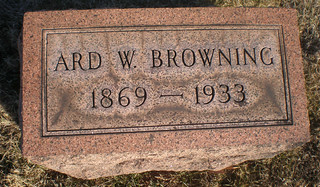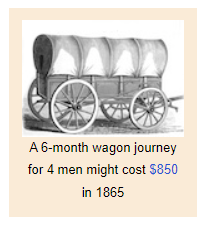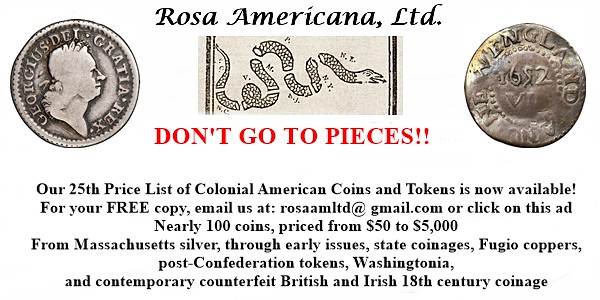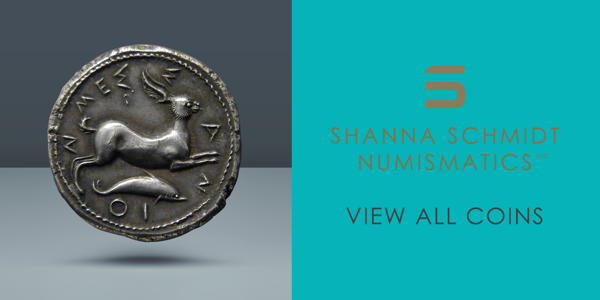
PREV ARTICLE
NEXT ARTICLE
FULL ISSUE
PREV FULL ISSUE
NOTES FROM E-SYLUM READERS: NOVEMBER 5, 2023
On Missing Birth Certificates
Good point. Unfortunate, but true. -Editor
To read the earlier E-Sylum article, see:
On the Value of Union and Confederate Currency Last month Heidi Dehn asked for reference data on the value of currency in the Union and Confederacy for a story she is writing set in December of 1864 in Texas. -Editor
"None of the papers I am familiar with had that specific data.
But I did find this page, which may help out:
Thank you. Worth bookmarking. -Editor
To read the earlier E-Sylum article, see:
The Banknote Settlement Process "I have a question that is somewhat related to my enjoyment of this article: 1838 PROPOSED NATIONAL CURRENCY NOTE "I was thinking about the very confusing element of reserves, settlement balances, CBDC etc. I assume that before there was a national currency, and many banks had their own banknotes, their must have been a settlement process. The banks would need to keep track of their notes, they would need to be exchanges of notes. There might even have been an exchange rate given the different quality of different banks. "Has your fine website ever done a post, or edition exploring that dynamic? "Thanks and keep up the great work!" Thanks for your note - great question. Indeed, such settlements are a key part of the banking business, and still are as more and more transactions are done electronically. The industry has long established common clearinghouses to handle these settlements among multiple institutions. Here's one definition from the Encyclopaedia Britannica. -Editor Bank clearinghouses are generally voluntary associations of local banks set up for the purpose of simplifying and facilitating the exchange of such items as checks, drafts, bills, and notes, as well as settling balances among banks. They also may serve as a medium for discussion and group action on matters of mutual interest, such as fixing service charges, exchanging credit information, gathering credit data, and regulating advertising. The first modern bank clearinghouse was established in London in 1773, although the clearinghouse idea had been applied to various forms of trade in such places as Tokyo, Florence, and Lyon many centuries earlier. The first bank clearinghouse in the United States was established in New York in 1853.
To read the complete article, see:
To read the earlier E-Sylum article, see:
Wayne Homren, Editor The Numismatic Bibliomania Society is a non-profit organization promoting numismatic literature. See our web site at coinbooks.org. To submit items for publication in The E-Sylum, write to the Editor at this address: whomren@gmail.com To subscribe go to: https://my.binhost.com/lists/listinfo/esylum All Rights Reserved. NBS Home Page Contact the NBS webmaster 
|



